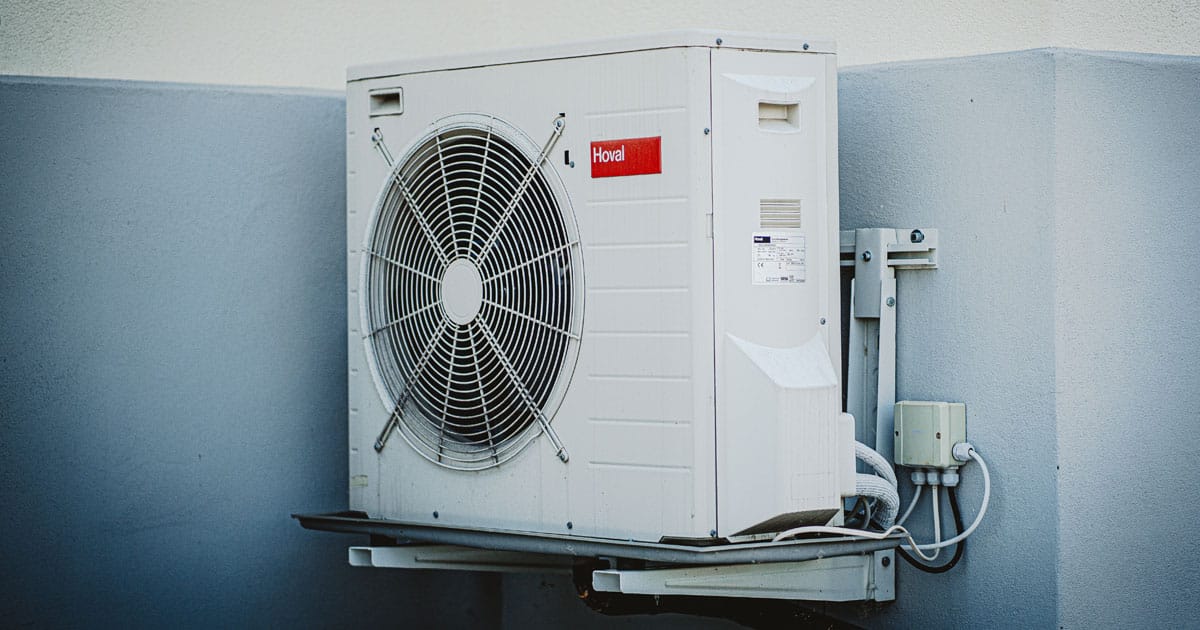Air conditioners use refrigerants to absorb and transport heat. If their levels drop too low, their cooling systems become less effective.
Whether you’re dealing with big or small AC issues, a professional technician must be called. They can detect where it is leaking from and restore more refrigerant, in addition to diagnosing any potential future problems that might occur.

1. Frozen Evaporator Coil
The refrigerant in an AC system absorbs heat from air passing over its evaporator coil. Due to leakage, for instance, low refrigerant levels can reduce its ability to absorb heat effectively and lead to condensation forming on the coil before freezing over completely.
Blowers push this air through vents throughout your home. When your evaporator coil is frozen, your cooling system takes longer to provide cooling services – and energy bills increase accordingly.
Frozen evaporator coils can often be caused by dirty air filters that reduce system airflow across the coil. A malfunctioning defrost cycle may also contribute to this issue, preventing frost or ice build-up on the coil and restricting proper defrost cycles from doing their job effectively. Install a new filter and ensure your system is defrosted annually to resolve this problem.
2. Clogged Drain Line
AC drain lines are small pipes used to transport moisture from a condensate drain pan to either an outdoor drainage pump or pump inlet and are susceptible to becoming blocked with dirt, algae, and mildew that collect in them. This makes them highly susceptible to becoming clogged up when traveling from their source of origin – the condensate drain pan – to their destination (usually outdoors or an outdoor pump).
Maintaining this line is vital for avoiding more significant problems with your AC unit and should be part of your routine maintenance visit.
Clogged drain lines cause water to back up into your air conditioning system and can lead to hissing sounds and moisture damage, creating hissing sounds that create hissing sounds as well as moisture damage.
Attempting to unclog a drain line yourself can void your warranty and lead to more expensive repair bills. Instead, contact local HVAC experts who will use a power auger to clear away the blockage, plug it in, remove its lid, and feed several feet of cable through to clear away your blockage.
3. Dirty Air Filter
An unclean air filter restricts airflow into your HVAC system, forcing its fan motor to work harder and consume more energy, ultimately increasing energy bills and possibly leading to premature equipment failure.
Refrigerant helps cool the air circulating throughout your AC system. When this vital ingredient runs low or leaks out, its capacity to provide comfort reduces significantly, as does its overall efficiency.
Leaks in an AC system add refrigerant into the environment and can make hissing sounds, so it’s wise to call in professionals as soon as you detect leakage to avoid more costly AC repairs. A professional can safely recharge your unit, locate its source, and help find ways to repair it – they may also suggest the best course of action when repairs fail to resolve themselves.
4. Rusty Components
Low refrigerant levels make it impossible to cool your home with an air conditioning unit effectively. Refrigerant absorbs heat from inside and then transfers it outside; if it takes more time than expected to reach your preferred temperature, there might be a leak along its lineage.
Your cooling unit could also leak refrigerant due to wear and tear. Over time, rubber seals that protect equipment could wear down, allowing coolant to seep from its system and escape into the environment. Incorrect assembly or handling could also contribute to this situation, leading to leakage that causes problems when installed into your home.
Professional advice should always be sought when handling cooling equipment, as inexperienced handling can invalidate warranties and result in costly repairs. If you hear hissing from your vents, it may be time to contact a technician immediately.
5. Disconnected Drain Pipe
Your air conditioning system’s evaporator coils may vibrate during operation, causing capillary tubes to wear down over time and lead to small holes that allow refrigerant leakage. Luckily, this issue can be easily rectified by replacing damaged capillary tubes.
Your AC will use more energy when its refrigerant levels drop, leading to higher electric bills and increasing global warming and ozone-harming chemicals. When this occurs, its leakage could harm both people and the planet.
If your air conditioner appears to be leaking refrigerant, contact an HVAC technician as soon as possible to schedule service and ensure its safe functioning. In severe cases, upgrading to a more energy-efficient model may improve comfort and safety in the home; consult with a trusted local contractor on what options exist to prevent future damages and issues.
